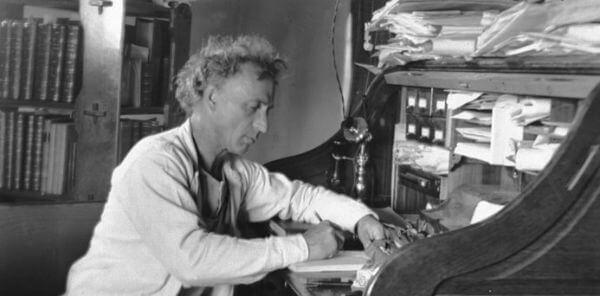How Charles Fletcher Lummis helped create the myth of the American West

At Lapham’s Quarterly, Greg Luther writes:
For a people more and more bound to the city, more confined to factory work and its bitter hours and cramped spaces, to a people suffocating from the smoke and greed of industrialism, a walk under open skies must have seemed the purest freedom.
In A Tramp Across the Continent Lummis fashioned himself as a man unafraid to cast off the shackles of society and stride westward: “In my pockets were writing material, fishing tackle, matches and tobacco, and a small caliber revolver.” Mundane lists like this do a great job of underscoring exactly what has been left off the list, namely gumption, and there is no greater theater for the display of gumption than the mythic American West. In our country’s imagination, the West has long been a place where men could regain the strength that had been sapped by society. “Life consists in wildness,” wrote Thoreau, in his essay “Walking.” “The most alive is the wildest.”
Lummis drew on that mythology in A Tramp Across the Continent but converted it to a more consumable, popular form. He fought off bandits with his bare hands, won a shooting contest, and survived a wildcat attack. These now read like fixtures of the Western, but at the time the genre was not yet in full form. Owen Wister wouldn’t publish The Virginian for another decade. Lummis relied upon early progenitors like James Fenimore Cooper and Captain Mayne Reid, an Irishman who wrote adventure novels set in the wilderness. In doing so, Lummis added another tie to the track that leads away from the historical West and toward the Western. But unlike the works of Cooper or Reid, which tell of fictional characters, Lummis fashioned himself as the hero. [Continue reading…]